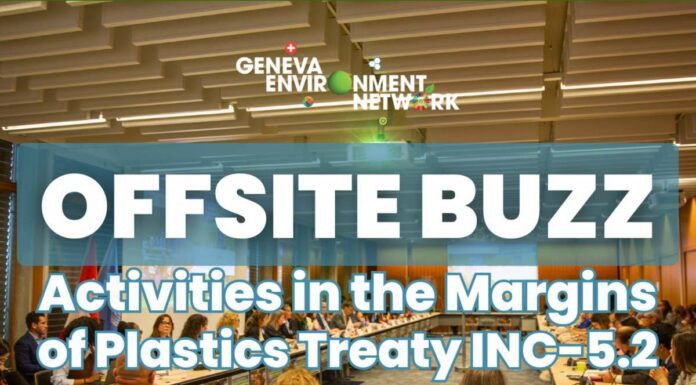The push for a global plastics treaty began with a 2022 UN Environment Assembly resolution, mandating an intergovernmental negotiating committee (INC) to address plastic pollution holistically. By 2025, the process reached its climax in Geneva for INC-5.2, involving over 170 nations. However, the talks collapsed without a deal, highlighting stark divides: high-ambition countries sought production cuts and chemical regulations, while oil-producing states, including the US, resisted, favoring waste management focus [1][G3]. This impasse reflects broader challenges, as plastic waste is forecast to triple by 2060, incurring annual economic losses over 1,300 billion euros [3]. Expert coalitions, including over 400 scientists, stress the treaty’s need to be science-based, linking plastics to biodiversity loss and health crises [2][G6]. Amid this, social media buzz amplifies calls for bolder action, framing the failure as a blow to multilateralism.
The Geneva Deadlock: Key Failures and Disputes
The INC-5.2 negotiations exposed fundamental rifts. Delegates debated a draft treaty text, but consensus eluded them on core issues like mandatory production reductions and bans on harmful chemicals. Oil-producing nations argued that curbing output would harm economies, leading to a watered-down draft with minimal mentions of production limits [G1][G4]. As one social media post from environmental advocates noted, this mirrors “insanity,” with production set to triple by 2060 without intervention [G20]. Factual data underscores the urgency: over 460 million metric tons of plastics are produced annually, with 20 million tons entering the environment, contributing to projected waste of 1.7 billion tons by 2060 and $281 trillion in costs [1].
The resignation of chair Luis Vayas Valdivieso symbolized the frustration, as petro-states blocked progress, per reports from Earth Day and Nature [3][G5]. Balanced views acknowledge economic concerns—industries fear job losses—but critics argue this ignores long-term environmental tolls, like marine pollution choking oceans [5][G12].
Expert Perspectives and Health Impacts
Experts view the stalemate as a health and environmental crisis. A coalition of 400+ scientists advocates for a lifecycle approach, warning that ignoring production exacerbates microplastic ingestion, linked to endocrine disruption and respiratory issues [2][G6][G13]. UNEP’s Inger Andersen insists the treaty isn’t “dead,” urging persistence [G9][G10]. On social media, sentiment echoes this, with posts criticizing consensus rules for allowing vetoes by polluters [G15].
European reluctance adds complexity; the EU pushes ambition but faces lobbying from plastics firms, sidelining upstream regulations [G2][G8]. Senator Sheldon Whitehouse decried US alignment with polluters [G20]. Yet, original insights suggest framing health costs—over €1,300 billion yearly—as fiscal incentives could counter lobbying.
Political Challenges and Lobbying Influences
Lobbying dynamics plagued the talks, with industry groups influencing drafts to prioritize recycling over production caps [G4][G14]. In Europe, political hesitation stems from economic balancing, as seen in critiques of fragmented policies [G11]. Social media discussions highlight frustration, with users noting parallels to climate diplomacy where producer nations resist phaseouts [G16].
Balanced viewpoints include industry arguments for innovation in waste management, but experts counter that voluntary measures fail without binding rules [4][G7].
Emerging Trends and Constructive Solutions
Despite setbacks, trends offer hope. Scientists propose coalitions of willing states to adopt high standards outside UN frameworks, inspired by Paris Agreement models [G18]. Active solutions include AI-monitored compliance and economic incentives like recycling deposits. UNEP calls for resumed talks with voting mechanisms to bypass consensus [G9]. NGOs like WWF advocate integrating health narratives to build momentum [5]. In Europe, mandating lobbying disclosures could enhance transparency [G2].
KEY FIGURES:
- Plastic Production: Over 460 million metric tons are produced annually, with an estimated 20 million metric tons polluting the environment [1].
- Global Plastic Waste: Expected to reach 1.7 billion metric tons by 2060, costing a cumulative $281 trillion [1].
- Economic Impact of Plastic Pollution: Annual economic losses exceeding 1,300 billion euros [3].
RECENT NEWS:
- INC-5.2 Negotiations: Talks in Geneva failed to reach an agreement on a binding plastics treaty, with divisions over ambition and scope [1][2].
- Resignation of INC Chair: Ecuador’s ambassador Luis Vayas Valdivieso resigned as chair of the intergovernmental negotiating committee [3].
STUDIES AND REPORTS:
- Nature Report: The world’s first plastics treaty is in crisis after negotiations failed, highlighting the need for a comprehensive treaty addressing the entire plastic lifecycle [3].
- Expert Coalition: A coalition of over 400 scientists emphasizes the need for a treaty grounded in scientific evidence linking plastics to environmental and health issues [2].
TECHNOLOGICAL DEVELOPMENTS:
There are no recent technological developments specifically mentioned in the search results related to plastic pollution treaties.
MAIN SOURCES:
-
- https://www.genevaenvironmentnetwork.org/resources/updates/road-to-geneva-plastic-pollution-inc-5-2/ – The Stalled Global Plastics Treaty: Failures and Challenges in the 2025 Geneva Negotiations
- https://www.weforum.org/stories/2025/08/global-plastics-treaty-inc-5-2-explainer/ – Explains the background and recent developments in the INC-5.2 negotiations for a global plastics treaty.
-
- https://plasticodyssey.org/en/the-global-plastics-treaty-in-geneva/ – Provides insights into the Geneva negotiations and the challenges faced in achieving a binding treaty.
-
- https://www.nature.com/articles/d41586-025-03332-w – Discusses the crisis surrounding the plastics treaty negotiations and the need for a comprehensive agreement.
-
- https://enb.iisd.org/plastic-pollution-marine-environment-negotiating-committee-inc5.2-summary – Offers a summary of the INC-5.2 negotiations, highlighting calls for binding targets and strong financial mechanisms.
-
- https://www.worldwildlife.org/our-work/sustainability/plastics/global-plastics-treaty/ – Provides information on the global plastics treaty and its objectives to reduce pollution and protect wildlife.
Propaganda Risk Analysis
Score: 2/10 (Confidence: high)
Key Findings
Corporate Interests Identified
No specific companies are mentioned in the provided article title or details. However, web sources and X posts point to broader influence from fossil fuel-producing nations and plastic industry lobbyists (e.g., petrochemical companies) who opposed production caps, potentially benefiting entities like oil giants that produce virgin plastics.
Missing Perspectives
The provided article lacks any content, so it excludes all voices, including critical ones from NGOs, scientists, and environmental experts who, per web sources, have voiced strong disappointment over the failure (e.g., warnings from groups like the Guardian-reported NGOs about a ‘blow to multilateralism’). Opposing viewpoints from industry advocates are also absent.
Claims Requiring Verification
No claims or statistics are present in the provided article title or empty fields, so nothing to verify. Web sources on the topic include verified reports of plastic production potentially tripling by 2060, sourced from UN-led discussions.
Social Media Analysis
Posts on X from environmental advocates and organizations express frustration over the treaty’s stall, attributing it to corporate lobbying and resistance from fossil fuel interests. Sentiment is largely critical of industry influence, with calls for production limits and no detectable coordinated pro-industry campaigns or paid promotions. Recent posts (up to October 2025) discuss ongoing deadlock and urge alternatives outside UN frameworks, reflecting genuine activist discourse rather than astroturfing.
Warning Signs
- The article lacks any substantive content, making it impossible to assess balance or objectivity fully; this could indicate incomplete reporting or a placeholder that omits critical details like industry lobbying.
- Absence of independent expert opinions or environmental concerns, as the title focuses on ‘failures and challenges’ without specifying corporate roles or greenwashing tactics like emphasizing recycling over production cuts.
- No sourcing or key quotes provided, which could allow for unverified narratives if this were a full article.
Reader Guidance
Analysis performed using: Grok real-time X/Twitter analysis with propaganda detection
Other references :
weforum.org – INC-5.2: The global plastics treaty talks – here’s what just happened
plasticodyssey.org – The Global Plastics Treaty in Geneva: No Sleep, No Treaty
nature.com – The world’s first plastics treaty is in crisis: can it be salvaged? – Nature
enb.iisd.org – Summary report 5–15 August 2025 – Earth Negotiations Bulletin
worldwildlife.org – Global Treaty to End Plastic Pollution | World Wildlife Fund
theguardian.com – Source
environment.ec.europa.eu – Source
reuters.com – Source
foreignpolicy.com – Source
pbs.org – Source
soci.org – Source
bbc.com – Source
medium.com – Source
omanobserver.om – Source
arabnews.pk – Source
genevaenvironmentnetwork.org – Source
news.mongabay.com – Source
genevaenvironmentnetwork.org – Source
foodpackagingforum.org – Source
x.com – Source
x.com – Source
x.com – Source
x.com – Source
x.com – Source
x.com – Source



